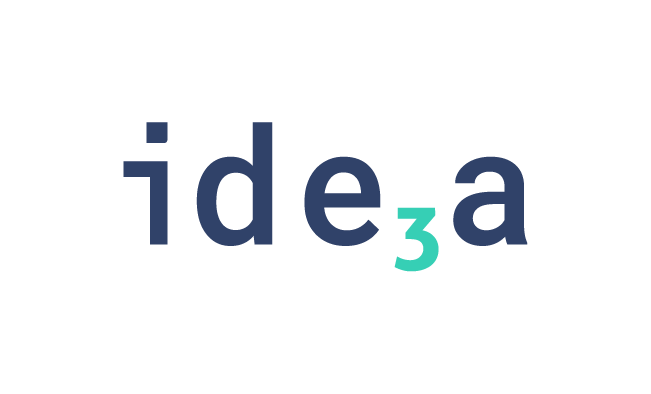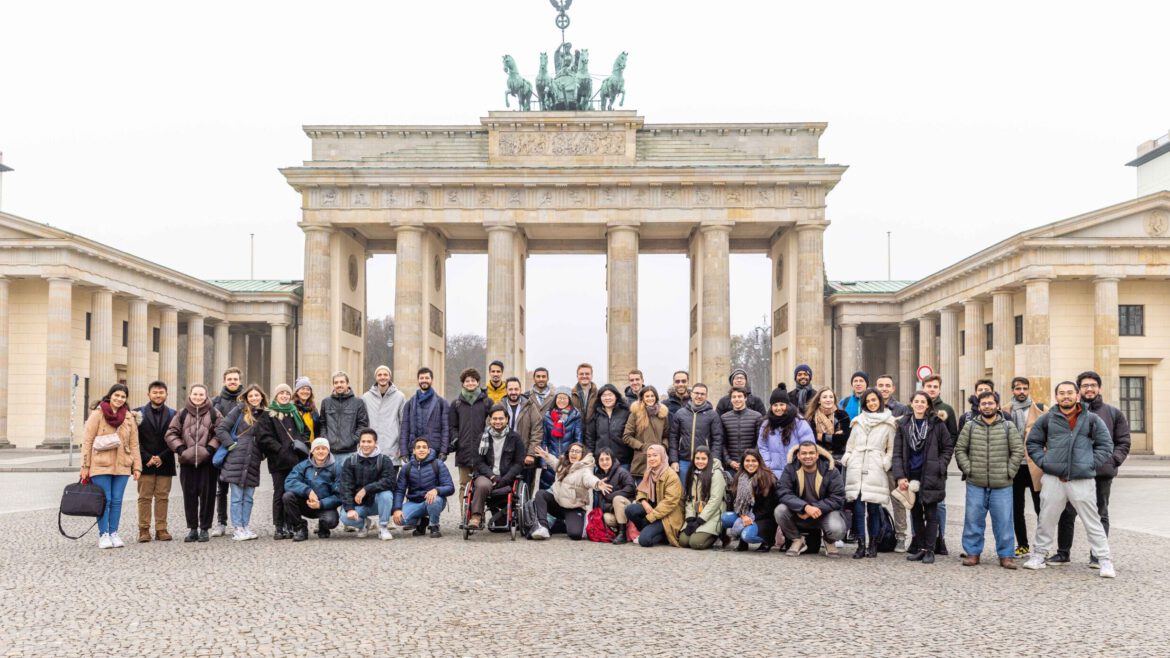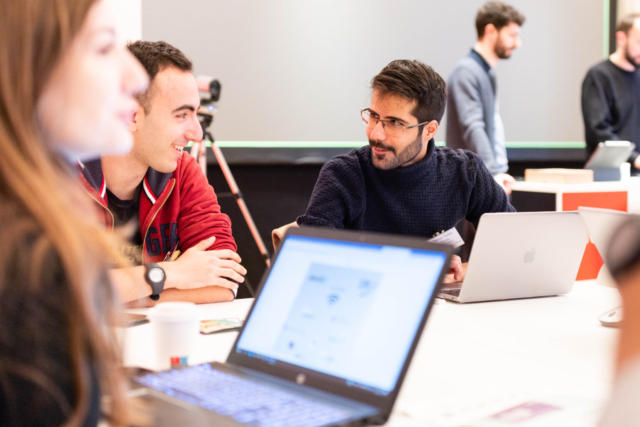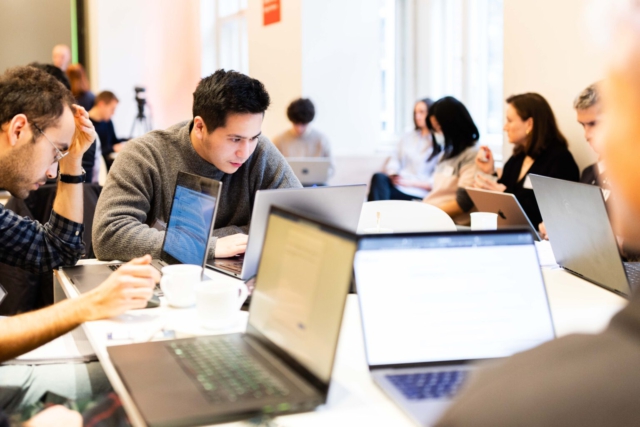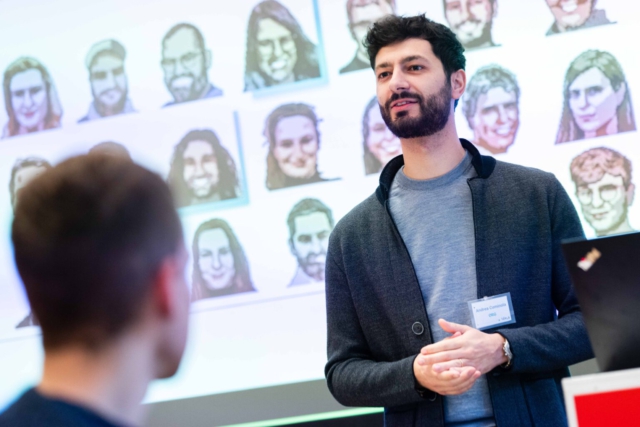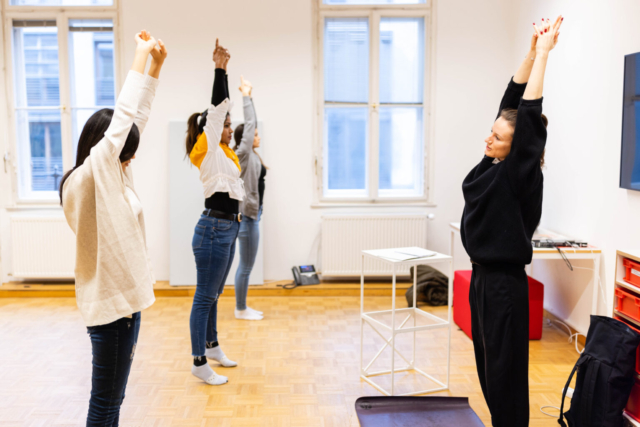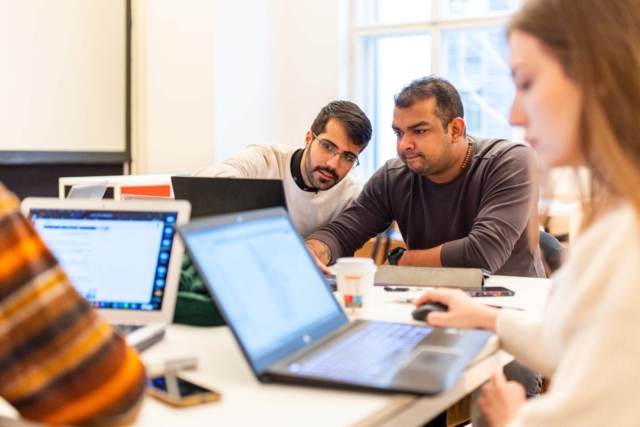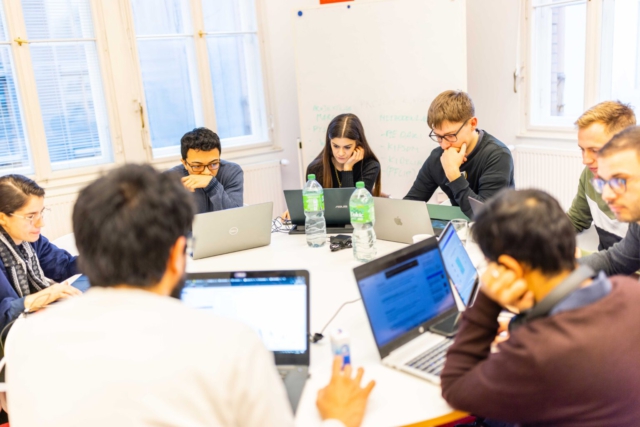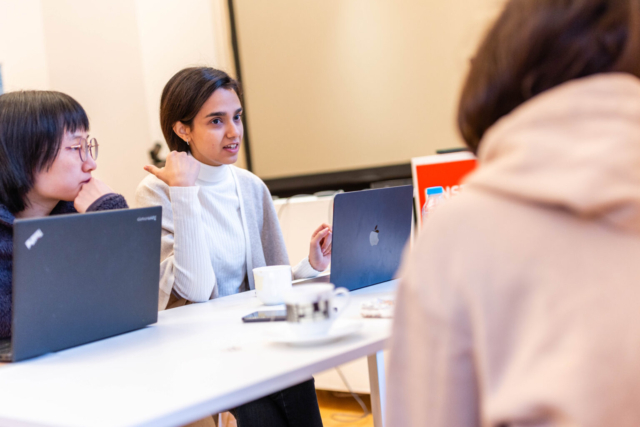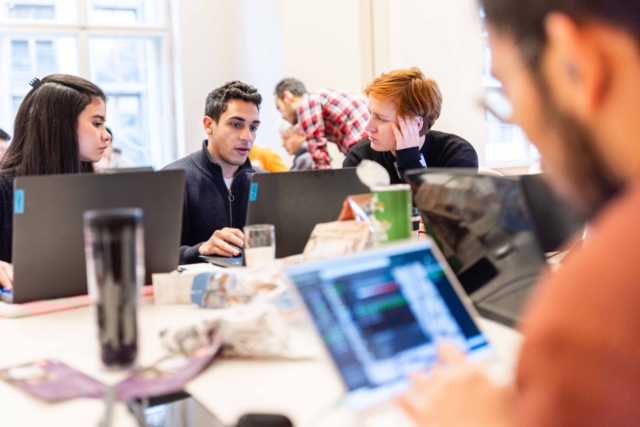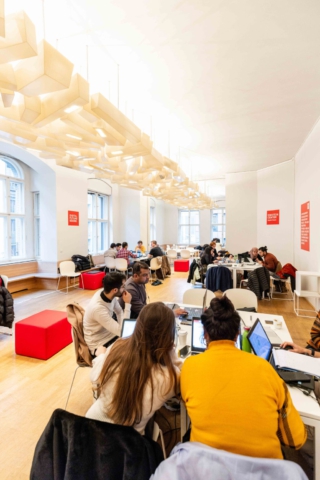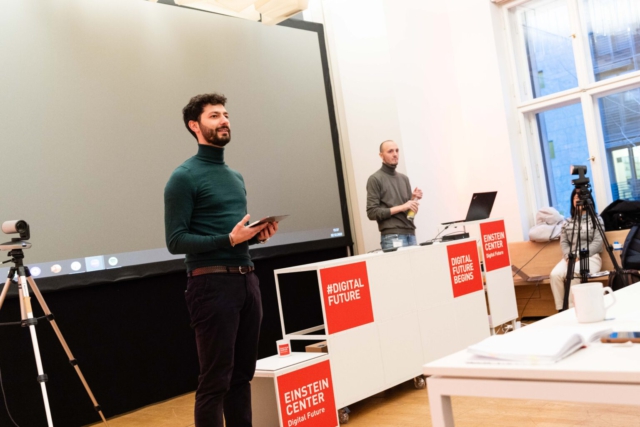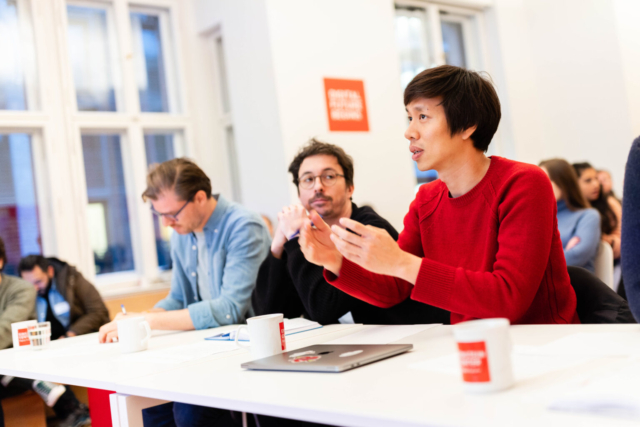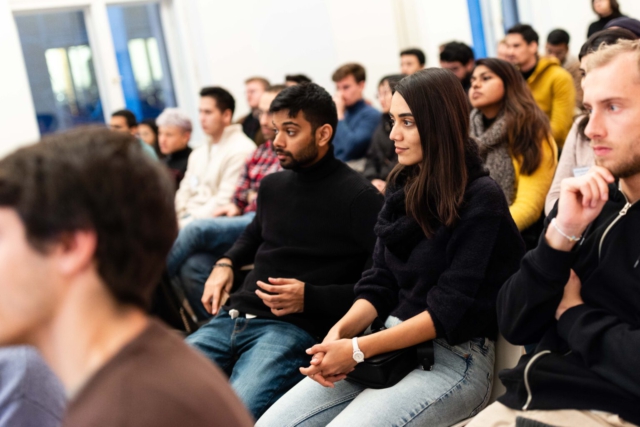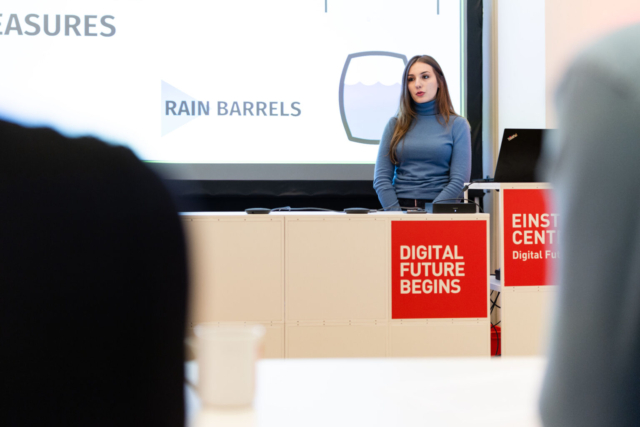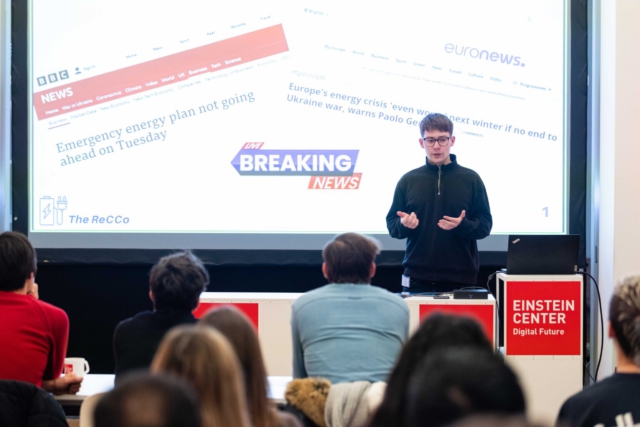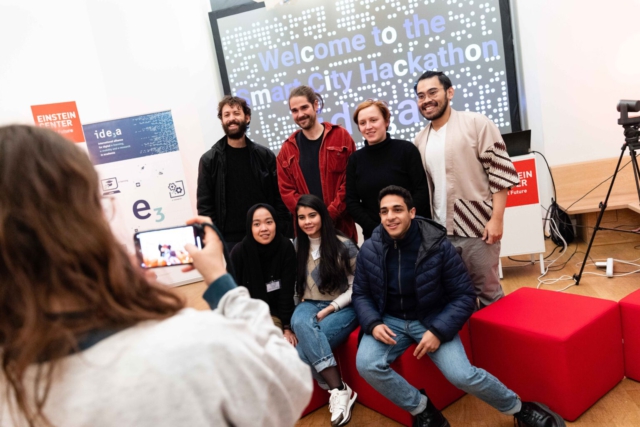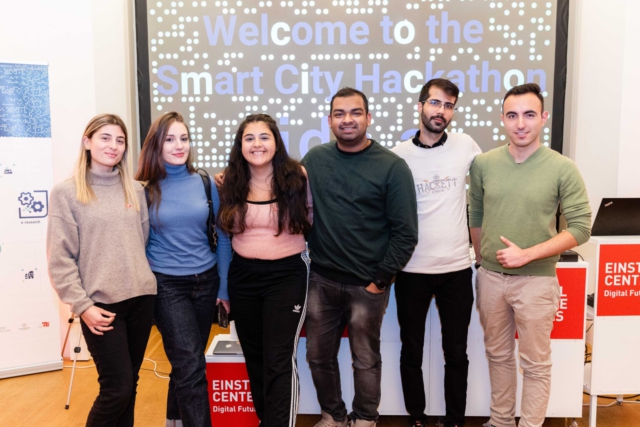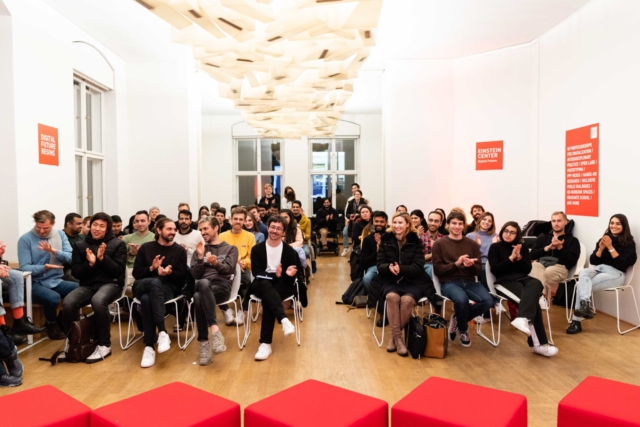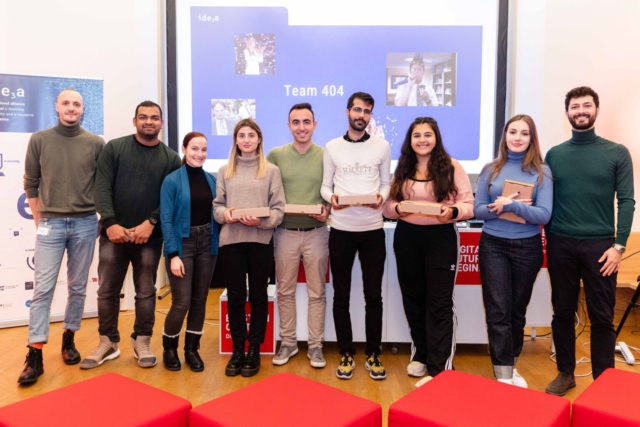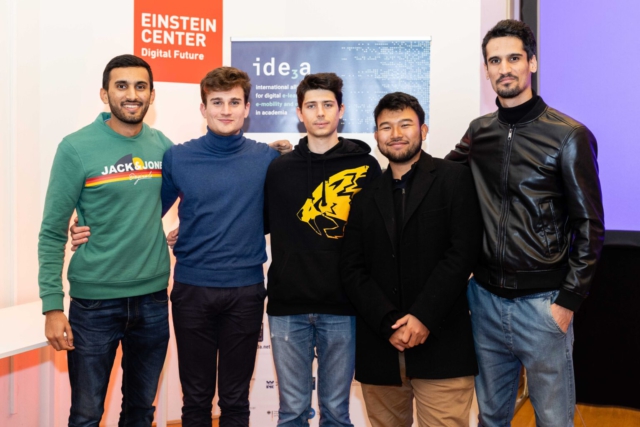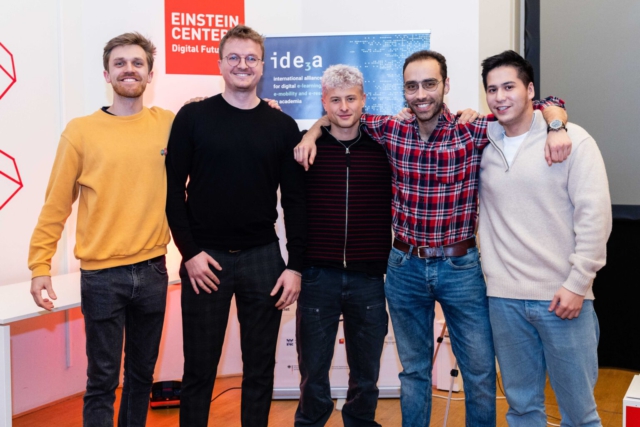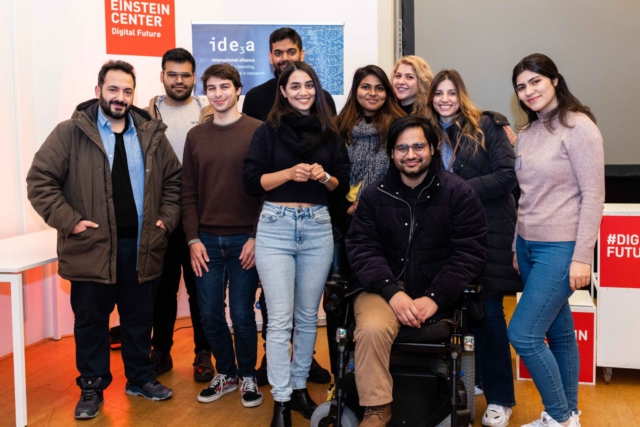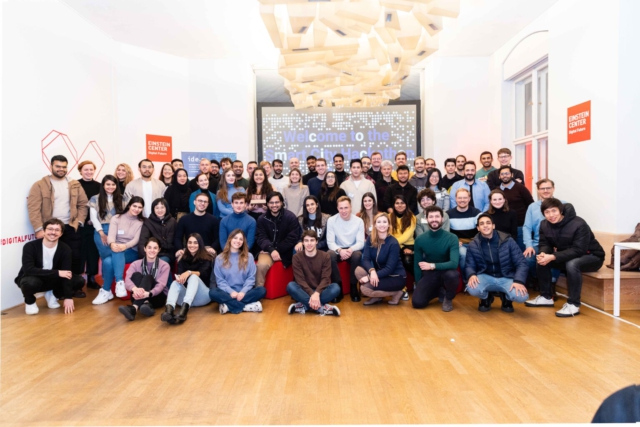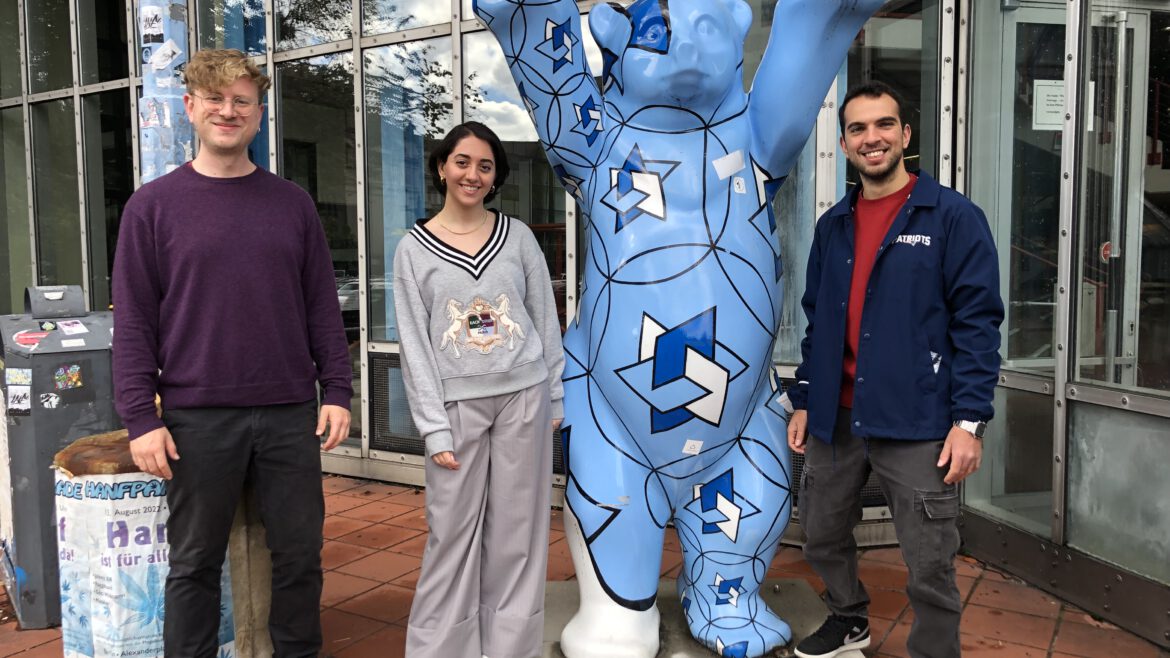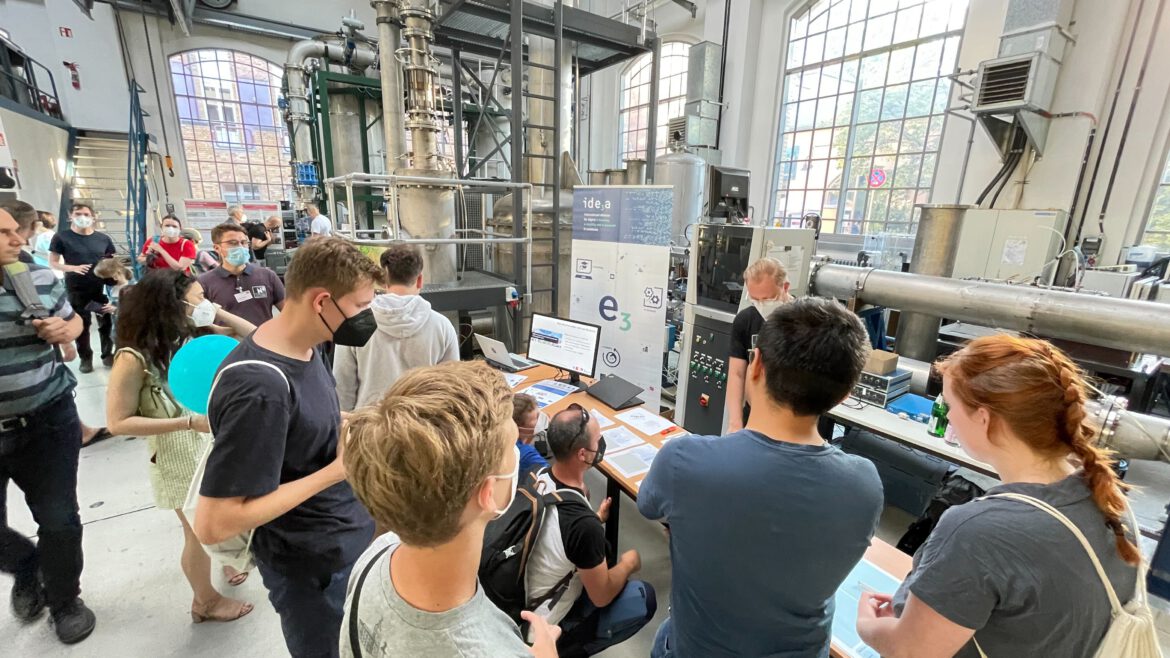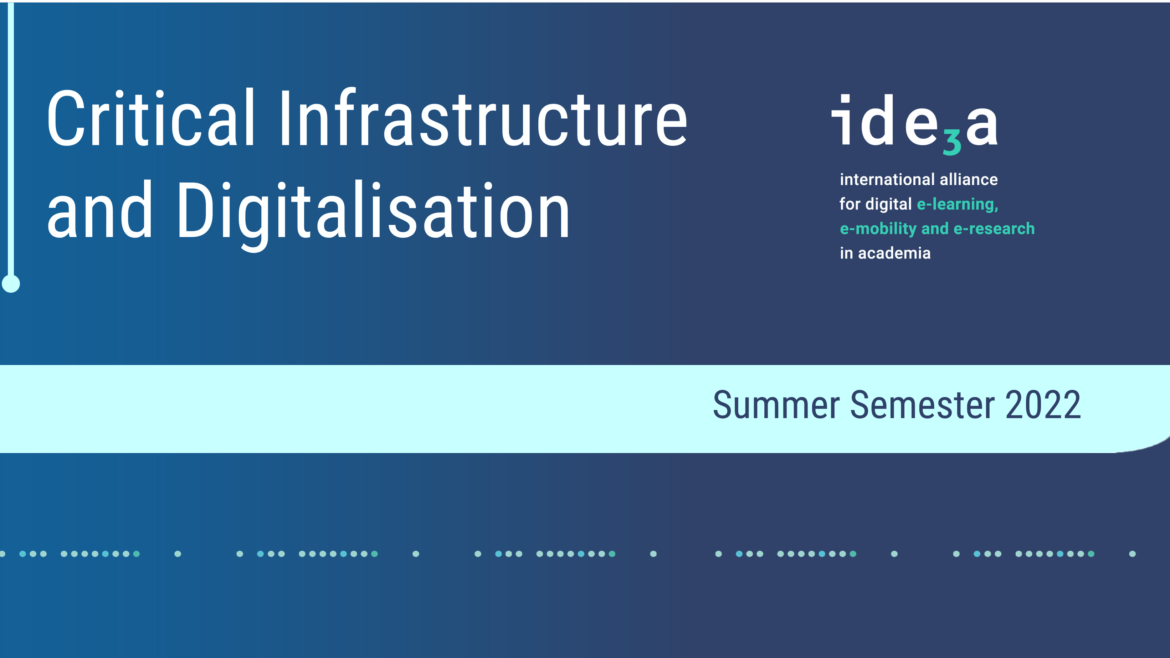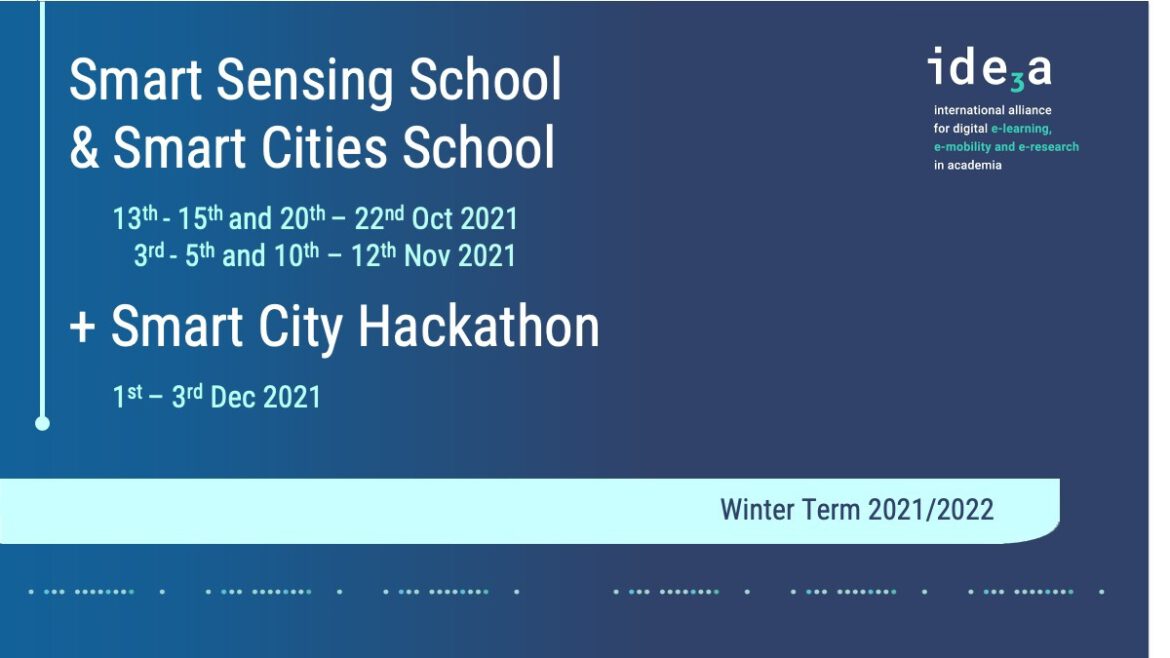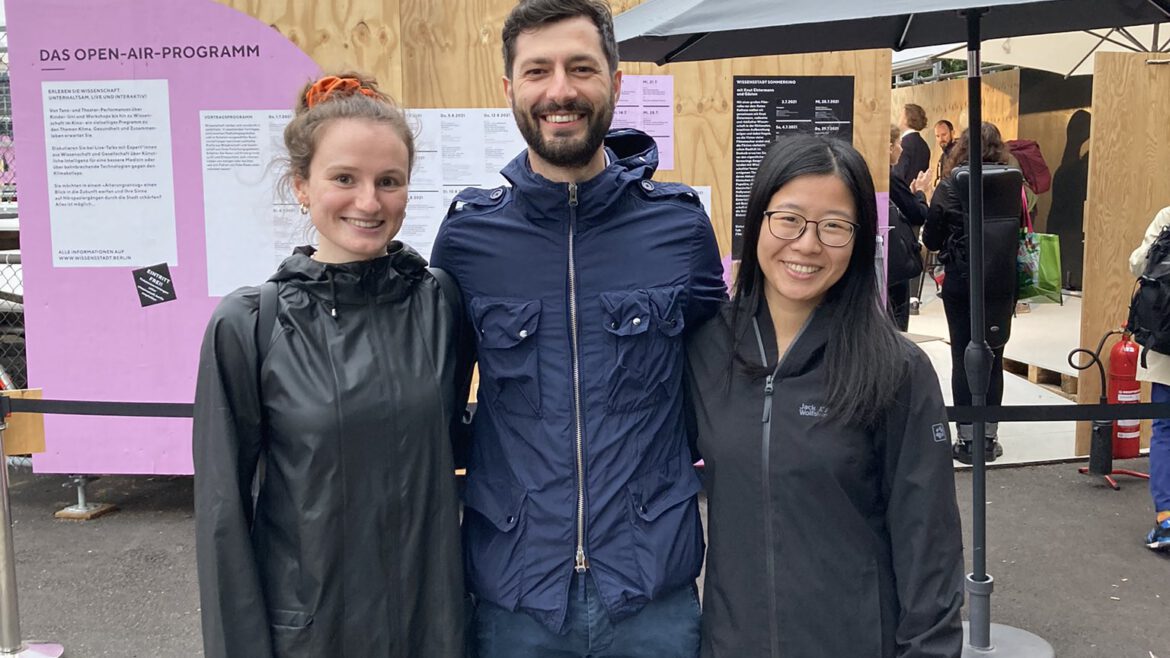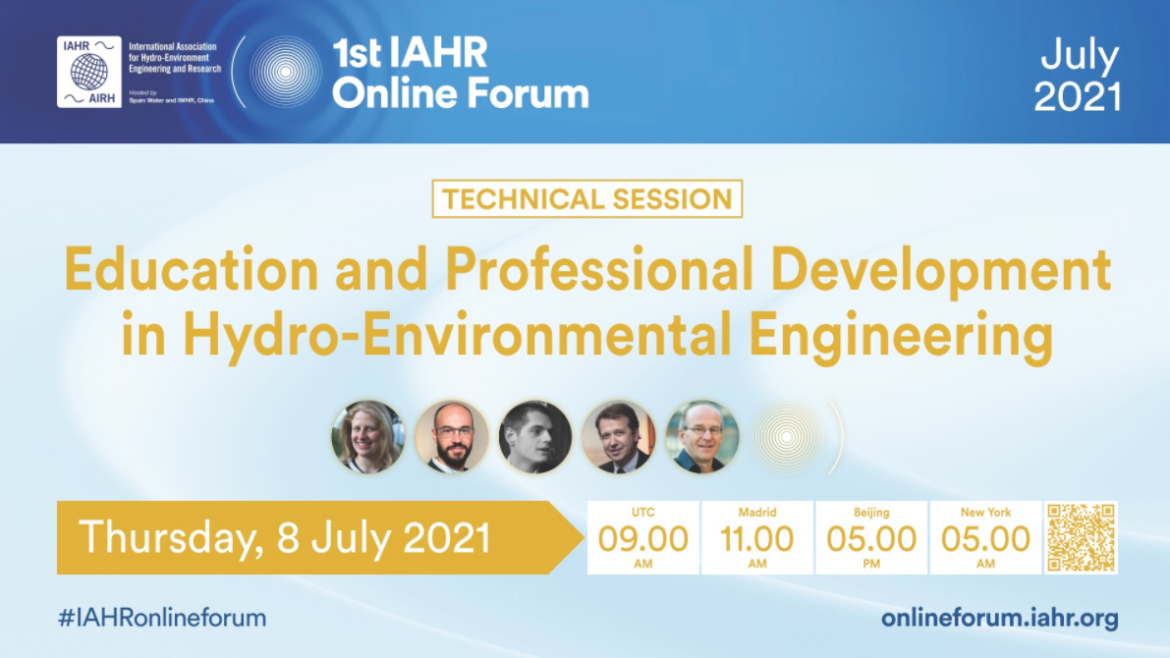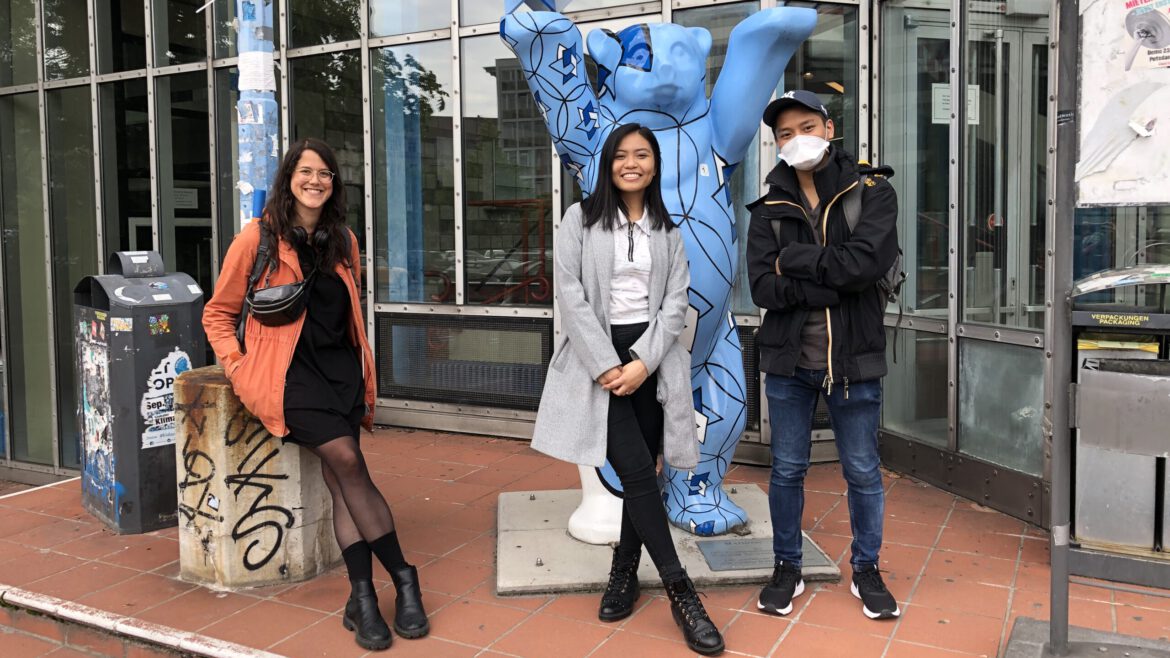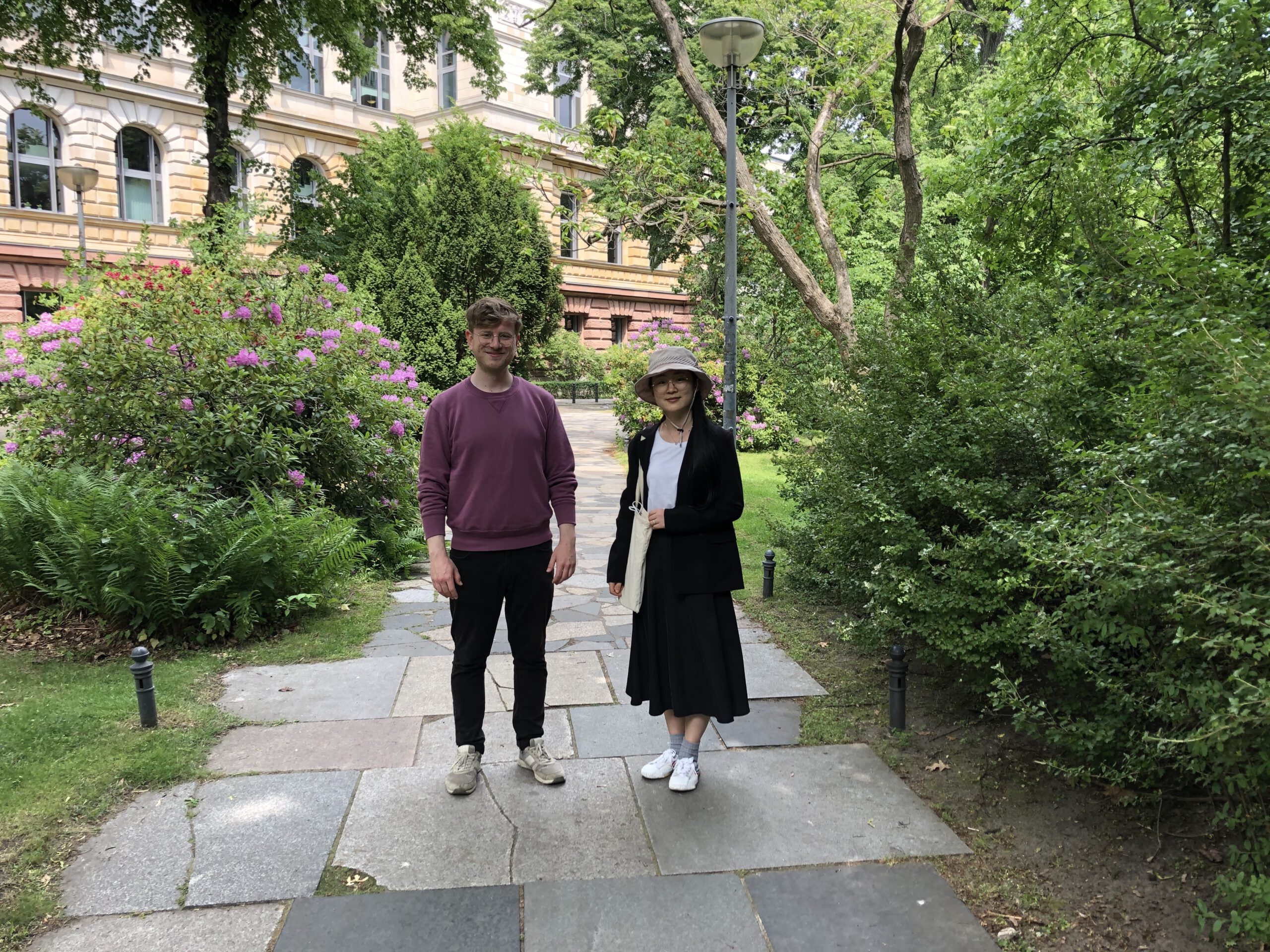The ide3a Smart City Hackathon 2022 took place at the ECDF from the 30th of November to the 2nd of December, 2022. The in-person event concluded the Smart Sensing and Smart Cities schools, which were held online during this Winter Semester. The two schools focused on the digitisation of urban critical infrastructure across the water, mobility, and IT sectors and are taught by experts from different faculties of the TU Berlin and international guest speakers from some of the ide3a partner universities NTNU, DCU, PoliMi, PK, and Hasso-Plattner-Institut (HPI). This year also featured guest speakers from the University of Western Australia, the University of Hong Kong, Friedrich Alexander University, the University of Illinois at Urbana-Champaign, and companies such as Ramboll and Form Follows You. The program included lectures and practical trainings on topics related to digital sensors, open data, distributed IT systems are explored, as well as how they relate to governance and relevant stakeholders.
During the hackathon, 50 students from TU Berlin (TUB), Norwegian University of Science and Technology (NTNU) and Politecnico Di Milano (PoliMi), who attended the two Smart Schools, joint forces to solve one of four challenges related to the different sectors introduced over the past weeks. Challenges for this year included blue-green infrastructure placement, privacy of smart meter data, resilient edge computing, and urban mobility monitoring. ide3a was pleased to have Dr. Aurel von Richthofen – Cities Team Leader, Arup (Semantic data for the next generation of Universal Digital Twins) and Ana Chubinidze – Founder and CEO, Adalan AI (AI Governance and ethics) on board as keynote speakers. The Jury members were Sangyoung Park (Assistant Professor of Smart Mobility Systems, TU Berlin), Betül Özdemir (Open Data Officer, Berliner Senatsverwaltung für Inneres, Digitalisierung und Sport), Morgan Geldenhuys (Entrepreneur in the digital health sector), and David Steffelbauer (Hydroinformatics Group Leader, Kompetenzzentrum Wasser Berlin).
For the students, it was a great opportunity to come together in Berlin to unleash their creativity in finding solutions to smart city challenges, while leveraging the knowledge acquired with our online courses. The goal was to put their new knowledge and tools into action, build some viable prototypes and most importantly work together in international and multidisciplinary teams. In addition to the work, ide3a also offered a social programme, for example yoga classes in the morning, a visit to a typical Christmas market at the banks of the Spree river and a sightseeing tour. At the end of the ide3a Hackathon, all groups presented their work to the assembled participants and received detailed feedback from the jury. Finally, the best team with the name “404” who worked on the challenge BGI (blue green infrastructure) placement was awarded an Arduino board and prototyping kit.
Copywrite all pictures: © ECDF/PR/Felix Noak
